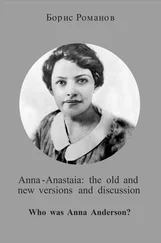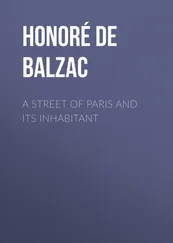Henry Edwards - Old and New Paris - Its History, Its People, and Its Places, v. 2
Здесь есть возможность читать онлайн «Henry Edwards - Old and New Paris - Its History, Its People, and Its Places, v. 2» — ознакомительный отрывок электронной книги совершенно бесплатно, а после прочтения отрывка купить полную версию. В некоторых случаях можно слушать аудио, скачать через торрент в формате fb2 и присутствует краткое содержание. Жанр: foreign_antique, foreign_prose, Путешествия и география, на английском языке. Описание произведения, (предисловие) а так же отзывы посетителей доступны на портале библиотеки ЛибКат.
- Название:Old and New Paris: Its History, Its People, and Its Places, v. 2
- Автор:
- Жанр:
- Год:неизвестен
- ISBN:нет данных
- Рейтинг книги:4 / 5. Голосов: 1
-
Избранное:Добавить в избранное
- Отзывы:
-
Ваша оценка:
- 80
- 1
- 2
- 3
- 4
- 5
Old and New Paris: Its History, Its People, and Its Places, v. 2: краткое содержание, описание и аннотация
Предлагаем к чтению аннотацию, описание, краткое содержание или предисловие (зависит от того, что написал сам автор книги «Old and New Paris: Its History, Its People, and Its Places, v. 2»). Если вы не нашли необходимую информацию о книге — напишите в комментариях, мы постараемся отыскать её.
Old and New Paris: Its History, Its People, and Its Places, v. 2 — читать онлайн ознакомительный отрывок
Ниже представлен текст книги, разбитый по страницам. Система сохранения места последней прочитанной страницы, позволяет с удобством читать онлайн бесплатно книгу «Old and New Paris: Its History, Its People, and Its Places, v. 2», без необходимости каждый раз заново искать на чём Вы остановились. Поставьте закладку, и сможете в любой момент перейти на страницу, на которой закончили чтение.
Интервал:
Закладка:
A French soldier, not knowing how otherwise to pass his time, entered the fashionable church of Saint-Roch. When the woman who receives money for the use of chairs approached him and asked for five sous, “Five sous?” he exclaimed. “If I had five sous I should not be here.”
A lady had a spoilt child, whose praises she was never tired of sounding. “Your child is delightful,” said a visitor. “At what time does he go to bed?”
Someone, in presence of the Abbé Trublet, was praising one day the soft seductive manners of Mme. de Tencin, who was fascinating but without principle. “Yes,” said the abbé, “if she wished to poison you she would use the sweetest poison she could find.”
A Paris cabdriver, much vexed by the success of the omnibus, then just introduced, determined to start an opposition. He proposed to take passengers at four sous a head, and put this inscription outside his vehicle: “Fiacribus at four sous.”
A Parisian boy was receiving a long lecture from his father on the subject of his inattention, no matter what good advice might be given to him. The boy lowered his head and seemed to be earnestly engaged in listening to his parent’s observations. Suddenly, however, he exclaimed, “Ninety-nine – one hundred! That is the hundredth ant, father, that has gone into that little hole since you have been talking to me.”
A Parisian, who could not brook contradiction, fought fourteen duels by way of maintaining his opinion that Dante was a greater poet than Petrarch. When dying from the effects of a wound received in his last encounter, he admitted to a friend that he had never read a line of either poet.
A Parisian candidate for the degree of bachelor in letters was being examined in history. He gave satisfactory answers to every question until at last he was asked when Charlemagne lived. “Eight centuries before Christ,” he replied. “You mean after Christ?” said the questioner with a smile. “I am sorry to disagree with the board of examiners,” answered the young man with some modesty, “but I maintain my opinion that Charlemagne must have lived eight centuries before Christ.” This determined student had, as a matter of course, to be plucked.
Two daughters of Paris, at the bedside of their dying father, who had gained millions by usury, were shocked to hear the priest, who had just received his confession, enjoin restitution as the only condition on which he could possibly be saved. “For pity’s sake, father,” said the girls, when the priest had left the room, “do nothing of the kind. You will suffer for a short time, but after the first quarter of an hour you will be like a fish in water.”
An impressionable Paris banker, the owner of immense riches, died of grief on hearing that he had lost everything in the world except 100,000 francs. His pauper brother, on inheriting the sum, died of joy.
A Parisian husband, to whom his wife rendered but scant obedience, asked her one day, when she was leaving the house, where she was going. “Wherever I like,” she answered. “And when do you propose to come back?” “Whenever I think fit,” she replied. “If you return one moment later,” said the husband, with an air of menace, “I shall have a word with you.”
A Parisian schoolboy, meeting a little beggar in the street who declared himself to be the most miserable boy alive, said to him, with an accent of deep sympathy, “What! are you learning the Latin grammar?”
The Prince de Condé was one of the wittiest of Parisians. He had been criticising severely a tedious tragedy called Zenobia, the work of the Abbé d’Aubignac. “It is written strictly in accordance,” said one of the Abbe’s defenders, “with the rules of Aristotle” “I don’t blame the abbé,” replied Condé, “for having followed Aristotle, but I shall never forgive Aristotle for having caused him to write so tedious a piece.”
A Parisian grande dame , before whom a gentleman had just taken out a cigar, was asked whether she disliked the smell of tobacco. “I cannot say,” she replied. “No one has ever smoked in my presence.”
The French are perhaps less celebrated than of old for their politeness. It was a French preacher, however, who, in a sermon delivered before Louis XIV., observed deferentially “we are nearly all mortal”; and it was a French professor who, when Louis XVIII. had requested from him some lessons in chemistry, began his explanations by saying, “These two bodies, of opposite properties, will now have the honour of combining in presence of your Majesty.”
A Parisian, in the midst of a dissipated life, was prevailed upon to enter a monastery. Ere long he confessed to the Superior that in his moments of solitude he was constantly assailed by a desire to return to his former mode of existence. The Superior recommended him on these occasions to ring the great bell of the monastery, which would at once give him bodily exercise, distract him from evil thoughts, and be a signal to the other monks to pray for him. He rang, however, so frequently that the bell went on tolling all night, until at last representations on the subject were made from the entire neighbourhood.
A cuirassier, who had seen and admired Horace Vernet’s military pictures, called upon the great painter and asked how much he would charge him for his portrait. “How much are you prepared to pay?” asked Vernet. “I could go as high – as high as a franc and a half,” replied the soldier. “Done,” said Vernet, and in a few minutes he had made a rapid sketch of the warrior. As the cuirassier left the room he said to a comrade who had been waiting for him at the door, “I got it done for a franc and a half. But I am sorry, now, I did not bargain. He might have taken a franc.”
Sophie Arnould’s dog having fallen ill, the celebrated actress sent him for treatment to her friend Mesmer, inventor of the pretended science which bears his name. In a few days the German physician returned the dog with a letter certifying that it was quite well. The dog, however, died on the way home. “What a comfort it is,” said Sophie, on seeing the letter and the dead body, “to know that the poor animal died in good health.”
On seeing the dancer, Madeleine Guimard, who was thin even to scragginess, perform in a “pas de trois” with a robust male dancer leaping about on each side of her, Sophie Arnould said that it was like two dogs fighting for a bone.
A Parisian lady observed one day, in the presence of a man six feet high who greatly admired her, that she did not like tall men. He redoubled his attentions until, seeing her one day in rather a dreamy condition, he asked her what she was thinking about. “I am wondering how it is,” she replied, “that you seem to get smaller and smaller every day.”
The Abbé Fouquet was Mazarin’s spy, and he threw numberless Parisians into the Bastille. One man, whom he sent there one day, saw a large dog in the court-yard of the fortress-prison. “What has that dog done?” he asked, “to get in a place like this?” “He has probably bitten the Abbé Fouquet’s dog,” replied a veteran prisoner.
An amorous youth wished to send to the object of his affections a passionate, but at the same time witty, epistle. After cudgelling his brains for some hours to no purpose he went to a bookseller’s, bought a “complete letter-writer,” and copied out what seemed to him the most suitable missive, which he duly despatched. The young lady replied to him next day as follows: “Turn to the next page and you will find my answer.”
A Parisian publisher, extremely annoyed at having printed a big book of which he could only sell four copies, bitterly reproached the author, telling him that his works would not even give him bread. A vigorous blow with the fist, which knocked out several of the publisher’s teeth, was the only reply made by the haughty writer. Arrested by the police, the latter, called upon to explain his conduct, extricated himself by the following ingenious defence, at which the judge, the audience, and even the plaintiff could not restrain their laughter. “Gentlemen,” he said, “I confess that I acted with rather too much warmth. I knocked out his teeth; but after all, what mischief is done? He told me my works would not give him bread, and teeth are useless when there is nothing to eat.”
Читать дальшеИнтервал:
Закладка:
Похожие книги на «Old and New Paris: Its History, Its People, and Its Places, v. 2»
Представляем Вашему вниманию похожие книги на «Old and New Paris: Its History, Its People, and Its Places, v. 2» списком для выбора. Мы отобрали схожую по названию и смыслу литературу в надежде предоставить читателям больше вариантов отыскать новые, интересные, ещё непрочитанные произведения.
Обсуждение, отзывы о книге «Old and New Paris: Its History, Its People, and Its Places, v. 2» и просто собственные мнения читателей. Оставьте ваши комментарии, напишите, что Вы думаете о произведении, его смысле или главных героях. Укажите что конкретно понравилось, а что нет, и почему Вы так считаете.












